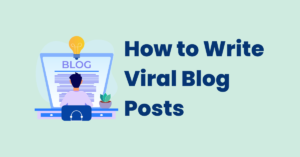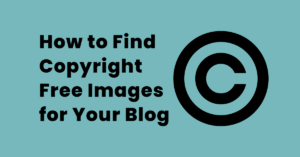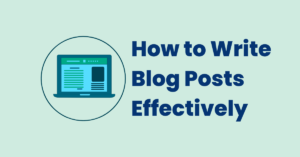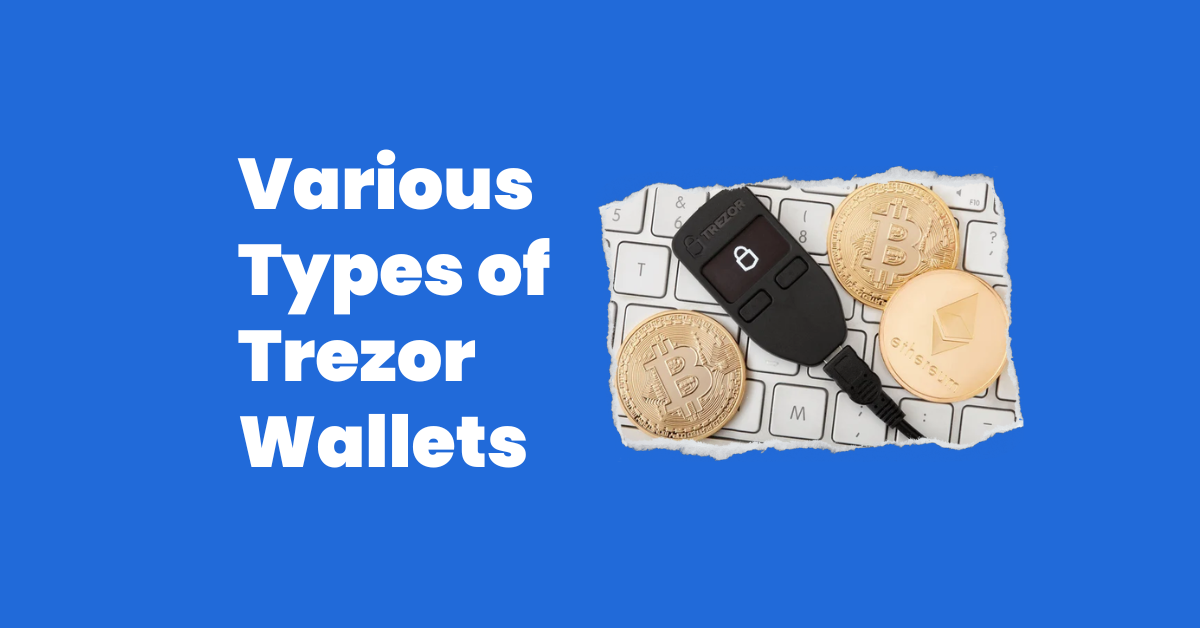The Ultimate Guide on How to Start Blog
Blogging has become one of the most popular ways to share ideas, express oneself, and even earn a living online. With the rise of social media and digital marketing, start of blog has never been easier or more important. However, with so much information available online, it can be overwhelming to know where to begin.
This article is designed to provide you with the ultimate guide to start a successful blog, from idea conception to implementation.

In this article, you will learn about the benefits of blogging, the different types of blogs, how to choose a niche, how to start a blog, how to create great content, and how to promote your blog. You will also learn about the tools and resources available to bloggers and how to monetize your blog.
Whether you are a beginner or an experienced blogger, this article has something for everyone.
Benefits of Blogging
Blogging has many benefits, both personal and professional.
Firstly, blogging allows you to express your ideas and opinions. It is a platform where you can share your thoughts on a particular topic, showcase your expertise, and connect with like-minded people.
Secondly, blogging can help you establish yourself as an authority in your niche. By consistently producing high-quality content, you can position yourself as an expert in your field, which can lead to new opportunities, such as speaking engagements or partnerships with brands.
Thirdly, blogging can be a source of income. While it takes time and effort to start and build a successful blog, many bloggers earn a full-time income from their blogs through advertising, affiliate marketing, sponsored posts, and product sales.
Finally, blogging can be a creative outlet. Whether you are a writer, photographer, or designer, blogging allows you to showcase your creativity and share your work with the world.
The Different Types of Blogs
Blogs come in many shapes and sizes, and each type of blog serves a unique purpose. Here are some of the most common types of blogs:
Personal Blogs
Personal blogs are a type of blog that focuses on the personal experiences, thoughts, and opinions of the blogger. These blogs can cover a wide range of topics, from travel and lifestyle to parenting and personal development.
Niche Blogs
Niche blogs are focused on a particular topic or industry. These blogs are often created by experts in their field and provide in-depth insights, news, and analysis related to their niche.
Business Blogs
Business blogs are created by companies and organizations to promote their brand, products, and services. These blogs may include company news, product updates, and industry insights.
News Blogs
News blogs are focused on reporting on current events and breaking news. These blogs often have a team of writers and editors who work to deliver timely and accurate news coverage.
How-To Blogs
How-to blogs are focused on providing step-by-step instructions and tutorials for various tasks and activities. These blogs are often popular with DIY enthusiasts, hobbyists, and people looking to learn new skills.
Review Blogs
Review blogs are focused on providing reviews and critiques of products, services, and other items. These blogs often have a dedicated following of readers who trust the blogger’s opinions and recommendations.
Guest Blogs
Guest blogs are written by guest authors and published on another blog. These blogs can help build relationships with other bloggers, reach a new audience, and provide valuable content for the host blog.
Understanding the different types of blogs can help you identify the type of blog that’s right for you and your goals. Whether you’re looking to start a personal blog or a business blog, it’s important to choose a niche that you’re passionate about and can consistently create content for.
By choosing the right type of blog, you can attract the right audience, build a loyal following, and achieve your blogging goals.
Choosing Your Niche
Choosing the right niche is crucial for the success of your blog, as it will determine whether you can attract and retain a loyal audience. Here are a few suggestions to assist you in selecting your niche:
Choose a topic you are passionate about
One of the best ways to choose your niche is to select a topic that you are passionate about.
Blogging requires a lot of time and effort, so it is essential to choose a topic that you enjoy and that you are knowledgeable about. This will make it easier for you to create high-quality content and engage with your audience.
Research your market
Before choosing your niche, it is important to research your market to ensure that there is demand for your topic.
Use tools like Google Trends, BuzzSumo, and social media platforms to see what topics are popular and what your competition is doing. This will help you identify gaps in the market and find unique angles for your blog.
Narrow down your focus
Once you have identified a broad topic for your blog, it is essential to narrow down your focus. For example, if you want to start a blog about fitness, you could narrow it down to a specific type of fitness, such as weightlifting, yoga, or running. By doing this, you’ll be able to generate content that’s more focused and pertinent to your audience.
Consider your target audience
Your niche should also consider your target audience. Who are you writing for? What are their needs and interests? Understanding your target audience will help you create content that resonates with them and build a community around your blog.
Evaluate the potential for monetization
Finally, it is essential to consider the potential for monetization when choosing your niche. Can you make money from advertising, affiliate marketing, or sponsored posts in your niche? This will depend on the size of your audience and the demand for your topic.
In summary, choosing your niche is a critical step in start of a successful blog. By choosing a topic you are passionate about, researching your market, narrowing down your focus, considering your target audience, and evaluating the potential for monetization, you can choose a niche that will help you attract and retain a loyal audience.
How to Set Up a Blog
Setting up a blog can seem overwhelming, but with the right tools and guidance, it can be a straightforward process. Here are the steps to follow to set up a blog:
Choose a Blogging Platform
The first step in setting up a blog is to choose a blogging platform. Popular blogging platforms include WordPress, Blogger, and Wix. Each platform has its own strengths and weaknesses, so it’s important to choose one that aligns with your goals and technical abilities.
Choose a Domain Name and Hosting
After selecting a blogging platform, the next step is to opt for a domain name and hosting. Your domain name is the web address where your blog will live (e.g., www.looksaffiliate.com).
Hosting is the service that stores your blog’s content and makes it accessible to readers online. There are many hosting providers to choose from, such as Bluehost, SiteGround, and HostGator.
Install and Configure Your Blogging Platform
After you’ve selected a domain name and hosting, you’ll need to install and configure your blogging platform. This typically involves downloading and installing the platform on your hosting provider’s server, setting up your blog’s basic settings, and customizing your blog’s design.
Create and Publish Your First Blog Post
Once your blog is set up, it’s time to create and publish your first blog post. This involves selecting a topic, writing your post, adding images and other media, and publishing your post on your blog.
Creating a Content Strategy
Your content strategy will help you plan and create content that is engaging, valuable, and relevant to your audience. Here are some tips to help you create a content strategy for your blog:
Set your goals
Before you start creating content, it’s essential to set your goals. What do you want to achieve with your blog? Do you want to attract more traffic, generate leads, build your brand, or establish yourself as an authority in your niche?
By setting clear goals, you can create a content strategy that aligns with your objectives and helps you measure your success.
Define your target audience
It’s essential to customize your content to suit your intended audience. Who are they? What are their pain points and interests? What questions do they have? Having a understanding of your audience will enable you to produce content that connects with them and encourages engagement.
Choose your content types
There are numerous content options available for your blog, such as blog posts, videos, podcasts, infographics, and various others.
Choose the content types that best suit your niche and your audience. For example, if you have a visual topic, like fashion or food, you might want to focus on creating high-quality images or videos.
Create a content calendar
Creating a content calendar will help you plan and organize your content. It will also help you ensure that you are creating content on a regular schedule. Your content calendar should include topics, titles, and deadlines for each piece of content.
Research keywords
Researching keywords will help you optimize your content for search engines. Use tools like Google Keyword Planner or Ahrefs to find keywords that are relevant to your niche and have high search volumes. Incorporate these keywords into your content to improve your search engine rankings.
Write high-quality content
The most crucial aspect of your content strategy is creating high-quality content. Your content should be informative, engaging, and valuable to your audience. Focus on creating evergreen content that will remain relevant over time.
In summary, creating a content strategy is essential for the success of your blog. By setting your goals, defining your target audience, choosing your content types, creating a content calendar, researching keywords, writing high-quality content, you can create a content strategy that helps you achieve your objectives and build a loyal audience.
How to Promote Your Blog
Promoting your blog is essential to attract readers, increase traffic, and grow your online presence. Here are some strategies for promoting your blog:
Share Your Posts on Social Media
Social media networks such as Facebook, Twitter, and Instagram have immense potential as tools to publicize your blog. Share your blog posts on your social media accounts, along with eye-catching images and captions that encourage your followers to read and share your content.
Engage with Other Bloggers in Your Niche
Networking with other bloggers in your niche can help you build relationships, gain exposure, and attract new readers to your blog. Follow and engage with other bloggers on social media, leave thoughtful comments on their blog posts, and collaborate with them on guest posts, interviews, or link exchanges.
Optimize Your Blog for Search Engines
Search engine optimization (SEO) can help your blog rank higher in search engine results pages (SERPs), which can drive more organic traffic to your site.
Some basic SEO practices include using relevant keywords in your blog posts, optimizing your blog’s metadata, and creating high-quality, shareable content that attracts backlinks from other websites.
Use Email Marketing to Build Your Subscriber List
Email marketing is a great way to keep your readers engaged and up-to-date with your latest blog posts.
Offer a lead magnet or incentive, such as a free e-book or exclusive content, in exchange for readers’ email addresses.
Use an email marketing service like Mailchimp or Constant Contact to design and send email newsletters that feature your latest blog posts, promotions, and news.
Attend Networking Events and Conferences
Attending networking events and conferences in your niche can help you connect with other bloggers and industry influencers, learn new skills, and gain exposure for your blog.
Look for local or online events that align with your niche or interests, and use them as an opportunity to network, learn, and promote your blog.
Monetizing Your Blog
One of the most common reasons people start a blog is to make money. While it’s not easy to monetize your blog, it’s certainly possible with the right approach. Here are some ways to monetize your blog:
Affiliate Marketing
Affiliate marketing is a popular way to make money from your blog. Essentially, you promote other people’s products or services and earn a commission for each sale made through your unique affiliate link.
To succeed at affiliate marketing, you need to choose products that are relevant to your niche and have a high conversion rate.
Sponsored Content
Sponsored content is content that is created in collaboration with a brand or advertiser. You can create sponsored blog posts, videos, or social media posts.
The key to successful sponsored content is to ensure that it’s relevant to your audience and provides value.
Display Ads
Display ads are a simple way to monetize your blog. You can sign up with an ad network like Google AdSense or Mediavine and display ads on your blog. You earn money based on the number of clicks or impressions your ads receive.
To maximize your earnings, it’s essential to optimize your ad placement and target high-paying keywords.
Sell Digital Products
If you have expertise in a particular area, you can create and sell digital products like ebooks, courses, or printables.
Creating digital products takes time and effort, but it can be a lucrative way to monetize your blog.
Offer Services
If you have a skill that is in demand, you can offer services like consulting, coaching, or freelance writing. Offering services allows you to leverage your blog as a platform to showcase your expertise and attract clients.
Create a Membership Site
A membership site refers to a website that provides specialized content or services to members who subscribe by paying a monthly fee. Membership sites can be a lucrative way to monetize your blog if you have a loyal audience and can provide valuable content that they can’t find elsewhere.
You can find more ways to make money online in this article.
Conclusion
In conclusion, start of a blog can be a rewarding and fulfilling experience that can help you share your knowledge and expertise with a wider audience.
With the right tools, strategies, and mindset, you can create a successful blog that attracts readers, builds your brand, and establishes your authority in your niche.
Throughout this article, we’ve covered everything you need to know to how to start a blog, from choosing your niche and platform to creating content, promoting your blog, and monetizing your efforts.
We’ve discussed the importance of creating high-quality content that resonates with your audience, building relationships with other bloggers and industry influencers, and using social media, SEO, and email marketing to promote your blog and attract new readers.
Keep in mind that building successful blog requires time, patience, and commitment. Don’t get discouraged if you don’t see immediate results, and don’t be afraid to experiment with different strategies and tactics.
Keep learning, growing, and adapting to the ever-changing landscape of the blogosphere, and you’ll be well on your way to creating a blog that makes a real difference in the lives of your readers.







